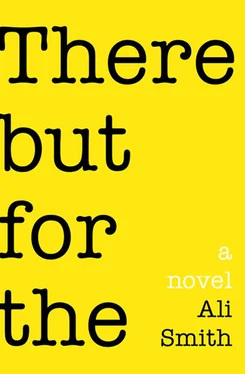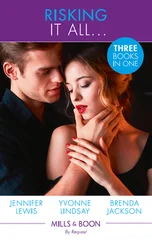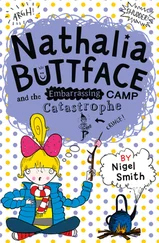So. So the fact is, at the end of the 4th century Greenwich was covered in the kind of plant life and so on that grows over the places no one goes to or uses. Probably there was a lot of ancient wildlife which came when that happened, the equivalents of frogs and hedgehogs and the kinds of things that come and inhabit wild places like on Springwatch on TV. On that programme they tell you how to make a wilderness in your garden so that live things will come and visit it or even decide to make their homes there. Some of them can be quite rare like the bird that is called a willow warbler which used to be widespread but now there are hardly any. But the point is, places that right now right this minute are places people go to in London and do not think twice about being in, can seriously just disappear. And if it could happen then it could happen now or any time, because there is a historical precedent, which is not the same as President Obama which is a different spelling though also a precedent of president at the same time! which is quite cool and witty when you think about it THINK YOU’RE THE CLEVEREST
the fact is, actually, it is okay to be clever. It is more than okay, to. It is cleverist, to be. Brooke Bayoude: Cleverist. CLEVERIST. So all these people here today looking at Greenwich, London, and thinking that history is past and over, that all it is is grass mounds in the ground where the Anglo Saxon men were buried once with all the shields and the music of the spears, should look again. Just look! It is called the Observatory here after all! ha ha! There is a picture of a man at the front of the telescope book at home. The man who is from the year 1660 has his whole body covered in eyes that are open. There is an eye on his foot and an eye on his knee. There are some all up his leg and his arm, and one on his shoulder, one on his wrist and one on his hand. The hand with an eye on it is pointing at the sky, where another hand, without an eye on it, is coming out of a kind of cloud of light and words are coming out of the fingers of the upper hand. The upper hand! Joke. The man who is looking at the word-hand has open eyes on his stomach even. The eyes cover him like butterflies would if butterflies ever landed all over you all at once. Imagine if your whole body was covered in butterflies and the butterflies were eyes, opening and closing their wings like eyelids and all seeing at the same time at different heights and angles. Would we see things from all their different sides at once? Would that make what we see have a different dimension inside our brains? In that telescope book there is also a picture of a Greenwich pensioner sailor from the old days hiring out his telescope to people and underneath the picture it says that probably the people are so keen to look through it because he has it pointed at Execution Dock. Because people actually paid money to a pensioner sailor to watch somebody be executed through a telescope! A person on Execution Dock would probably be being hanged, not guillotined, because the guillotine was not used in England although there was a way to execute called the Halifax Gibbet in England in history which was a bit like the guillotine. The point of the guillotine was that it was used so people would have a clean and quick death. It was popular in France, and 16,500 people were historically executed on one in what is now Europe where you go on the Eurostar to, in the 1930s and 1940s, though not since as far back as 1967 when the last person was guillotined somewhere. Brooke can’t remember where. She will have to check her facts. The problem with reading facts on the internet and sometimes in books, is that sometimes you might not be reading the true facts.
The fact probably is, a man was sent to prison in France for slapping the face of the head of a person who had just been beheaded to see if the face was still alive after the head was cut off!
The fact probably is, too, that in Halifax you could be sent to the Halifax Gibbet if you stole thirteen and a half old pence, and Halifax is not very far from York, where there is a house where a lady lived who was pressed to death by big stones. Brooke knows this because she has visited the lady’s historic house where there is a museum.
But the fact is, how do you know anything is true? Duh, obviously, records and so on, but how do you know that the records are true? Things are not just true because the internet says they are. Really the phrase should be, not the fact is, but the fact seems to be.
The fact seems to be, someone tried to blow up this very Observatory right here in 1894! It is a fact, apparently, that he didn’t damage the Observatory but instead he just blew his own stomach out right here in this park! There was a hole where his stomach should be and one of his hands exploded off, when the bomb exploded in that very same hand he was holding it in, well, the moral of the story is, don’t hold bombs in your hand, duh obviously. In fact a two inch piece of bone from inside the hand was found near the Observatory wall after that man died but the Observatory itself was not damaged by it or anything. Brooke puts her hands where her own stomach is and feels for what she can’t see inside herself. The man was apparently still alive when the people found him, and he could still speak apparently. Doctor Doctor, I feel a little empty inside. Doctor Doctor I really need a hand.!!! No, but it will have been really horrible. That man, therefore, could have literally actually in reality basically reached his own hand through the hole in himself and out the other side (meaning the hand he still had, obviously, not the one that got exploded off). So that is what history is, people and places that disappear, or are beheaded, or get damaged or nearly do, and things and places and people that get tortured and burned and so on. But this does not mean that history is not the unseen things as well. As an example of this: from up here you can see some of Greenwich — but not all of it. You can’t see all the people who still don’t know what in fact in reality has happened, still waiting there outside for Mr. Garth to come out or not come out. They are invisible for the simple reason that the place and the people are behind the trees and buildings so you can’t see them from here. It is a matter of perspextive. You can’t see the theatre, or even its roof, where the man called Hugo who was there the first night Mr. Garth shut himself in is doing the monologue. A monologue is a play with just one person in it. The title of the actual play is Miles To Go Before I Sleep, because Miles is Mr. Garth’s first name, although all the people outside call him Milo. It is meant to be about Mr. Garth and what is happening inside the room.
(The man called Hugo was sitting there on the stage when the audience members came in and sat down. He sometimes waved to them and sometimes acted like they weren’t there. When the play began, you couldn’t tell that it had begun, and then suddenly it just had. He did a lot of talking to himself and to the audience about how he had shut himself in the room because he wanted to be an actor and be on TV and the Stage but he had Failed in his life. There was a lot of sitting in the play, and some standing up, and then sitting down again. He sat on the bed and spoke, and then he stood behind a chair and spoke, and then he sat on the chair and spoke, and then he sat down on the floor and spoke. There was a great deal of speaking. He had pretend long hair and a pretend long beard like a wizard. He did not look anything like Mr. Garth. Brooke and her mother and father went on Friday night. It was an Alps of boredom. Brooke fell asleep in the second half. Then Brooke and her mother and father were on their way out of the theatre and they met Mrs. Lee who goes to see it every night and matinee because she has something to do with it. She told them for ages, again, about how realistic it all was and how she went and stood on the stage sometimes before or after the audience was allowed in and imagined she was in the actual real room in her house, and sometimes she could actually believe that she was, that’s how real it was. She told them again how the people doing the play even sent to Amazon.co.uk to get some of the very same DVDs that were in the actual room, with the same pictures on the covers, to make it be true and lifelike. He doesn’t look anything like Mr. Garth looks in the room, Brooke said. Well, none of us knows for sure, do we, Brooke? Mrs. Lee said, and the performance, every night, virtuoso! Mrs. Lee shook her head as if there was something she was looking at that she couldn’t believe. It was kind of you to put the tickets aside for us, Brooke’s mother said, especially with the run being sold out like it is. Then Mrs. Lee spoke some more about how the play was transferring soon to a real theatre. This is a real theatre, Brooke said. You enjoyed the play, didn’t you? Mrs. Lee said to Brooke. I found it weary, stale, flat and unprofitable, Brooke said. Mrs. Lee laughed. A bit over her head, Mrs. Lee said over Brooke’s head to Brooke’s parents. It is so not over my head, Brooke said. We all enjoyed it very much, thank you, Brooke’s mother said. We certainly did, Brooke’s father said. Then the Bayoudes said goodbye to Mrs. Lee and left the theatre. They stood outside and waited to cross the road. Virtuoso, Brooke’s father said. Virtue so-so, Brooke said. Her parents laughed so much that she thought about saying it again but people tend not to laugh so much the second time you make a joke. It wouldn’t be virtuoso of her if she did. It would actually be a bit virtue so-so if she did! Why is the theatre always sad, Brooksie? her dad said taking her hand as they crossed the road. Joke or do you really mean it? Brooke said. Joke, her father said. I give up, why is the theatre always sad? Brooke said. Because the seats are always in tears, her father said. It was a good joke when you knew that it was about the other spelling of the word tears: tiers. Tiers: rows of seats on a slant.)
Читать дальше












